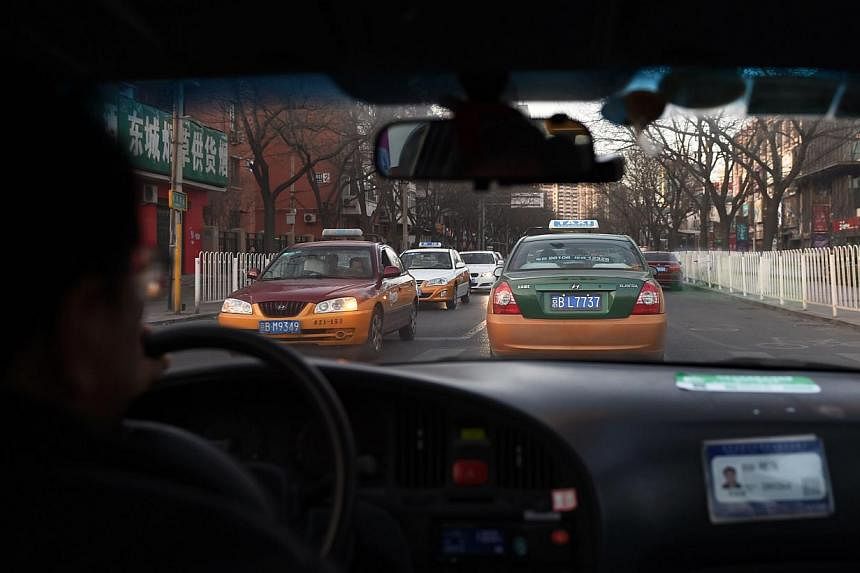The ride-sharing app Uber has encountered more than its share of regulatory crackdowns during its international expansion.
The South Korean authorities have declared their intention to arrest the company's chief executive; French police recently raided its Paris offices; and officials in Delhi are asking the Indian government to block the app outright.
But when police in the Chinese city of Guangzhou raided the local offices of the company last week, it added a new wrinkle to a familiar pattern.
China, like other countries, has a relatively new law that bans private cars from offering rides via apps. But it also has something else: Thousands of taxi drivers across the country who, in recent months, have taken to protesting against their working conditions, sometimes violently.
China's crackdown on Uber, in other words, may have less to do with protecting the owners of politically powerful taxi services than placating the taxi industry's increasingly volatile labour force.
China's licensed taxi drivers have rarely had much choice but to eke out a living under trying circumstances. Most drivers are required to work long shifts that can exceed 12 hours, and have typically had to pay more than half of their often-meagre incomes to state-sanctioned or state-owned taxi companies in the form of various mandatory fees.
The competition from taxi-hailing apps - and the diversion of fares to private drivers - has made their tough situation even more difficult. Earlier this year, taxi drivers across the country began expressing their disgruntlement in a series of angry strikes.
Such labour unrest, driven in part by the country's slowing economic growth, is far from uncommon in contemporary China. Last month, China Labour Bulletin, a Hong Kong-based non-governmental organisation, tracked 650 strikes in the first quarter of this year, compared with 569 in the previous quarter. Over 50 per cent of incidents involved construction and manufacturing workers, while around 10 per cent were taxi and services-related.
What taxi strikes have lacked in numbers, however, they have more than made up for in visibility. Drivers have not hesitated to disrupt the public's daily life.
In January, when drivers in at least six major cities decided to strike, they did not just stop working - they blocked traffic, and even besieged private cars associated with taxi-hailing apps. In at least one instance, riot police were forced to intervene.
The central government took notice. According to the Wall Street Journal, the government recently issued a policy paper calling on officials to "make the construction of harmonious labour relations an urgent task".
Uber, as the only foreign-owned taxi app company operating in China, makes for an especially easy target. The crackdown has not been limited to Guangzhou. This week, police in the city of Chengdu visited Uber offices as part of an "investigation" into its activities.
That is not to say the Chinese government intends to shut down the taxi app marketplace entirely. Chinese officials, including officials in Guangzhou, have been saying for some time that such apps can play a big role in reforming and restructuring China's sclerotic taxi industry.
So, the country's two most popular taxi apps, Kuaidi and Didi, which together are said to control 99 per cent of China's taxi hailing app market, probably do not need to fear getting shut down anytime soon. It helps that they are owned by Alibaba and Tencent - two massive Chinese Internet companies with strong political connections and a history of cooperating with Chinese officials.
As for Uber, which lacks those advantages, its Chinese taxis seem to have run out of road.
BLOOMBERG VIEW

